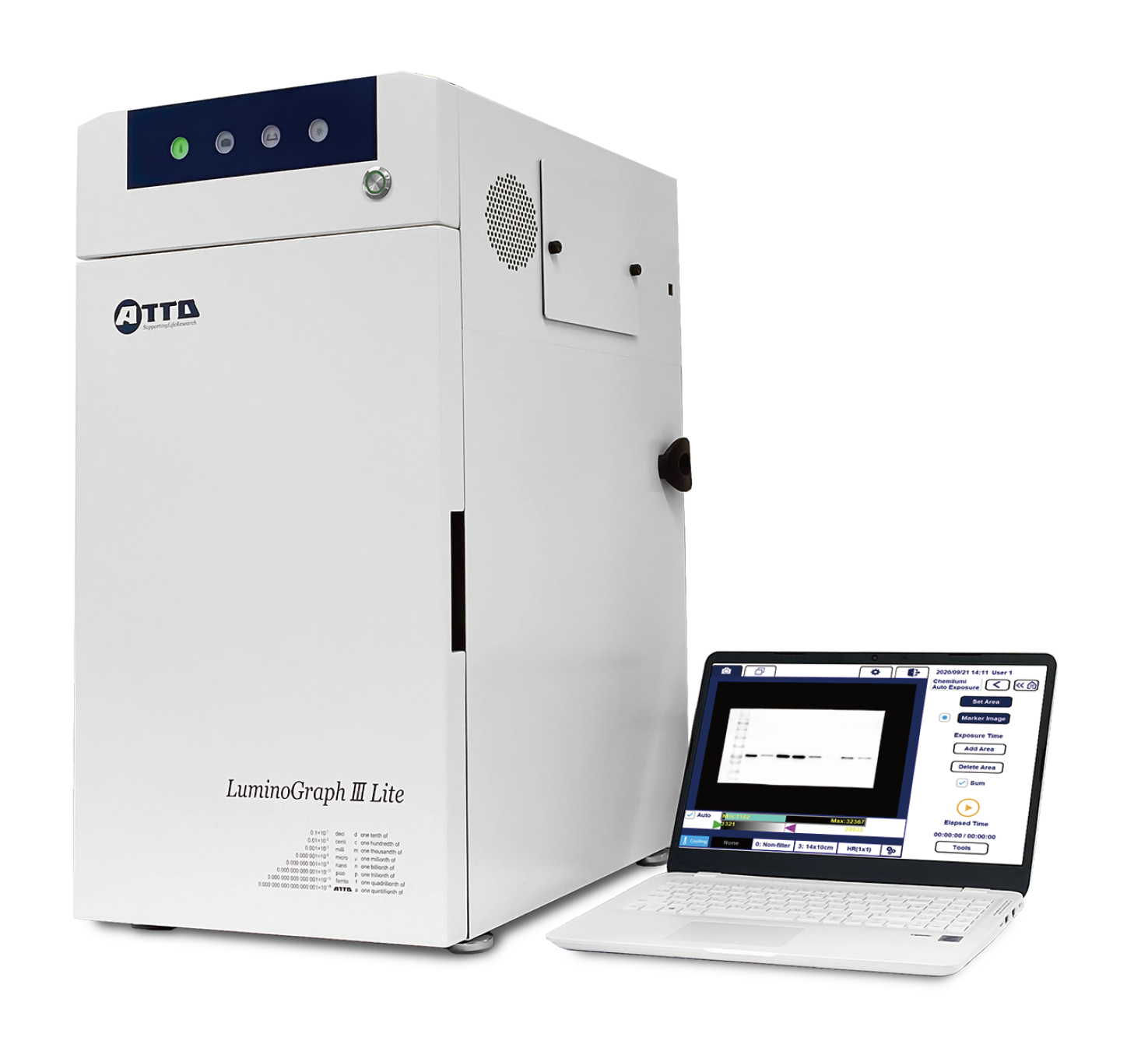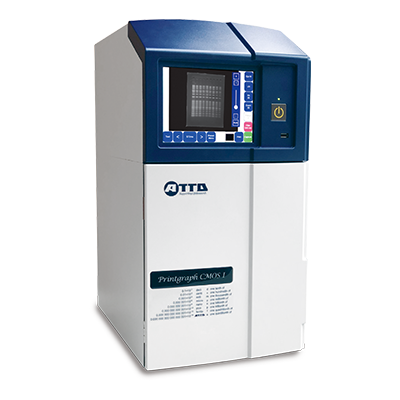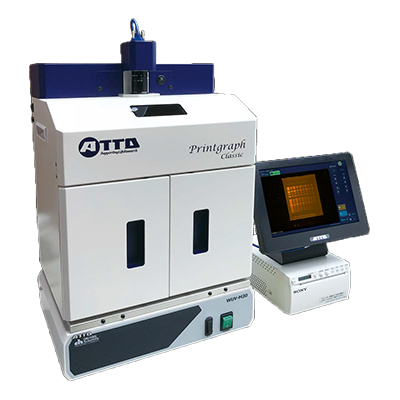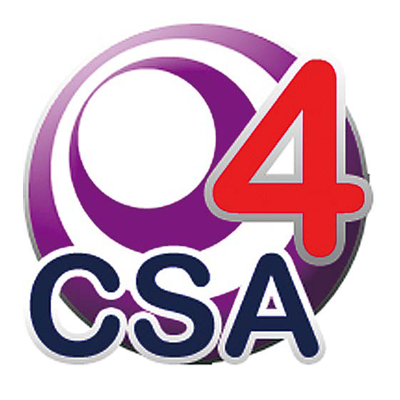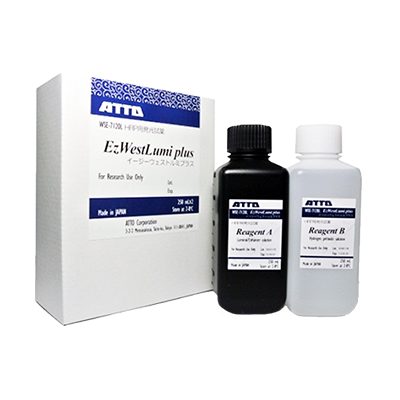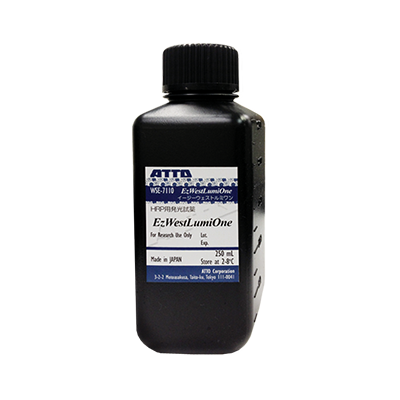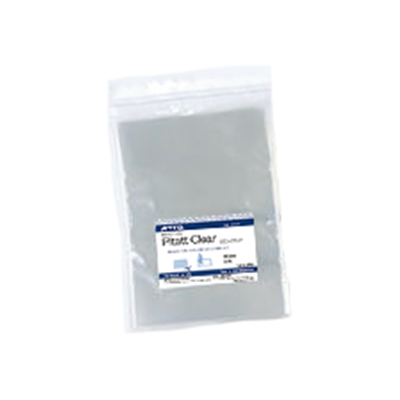WSE-6170 LuminoGraph I CMOS
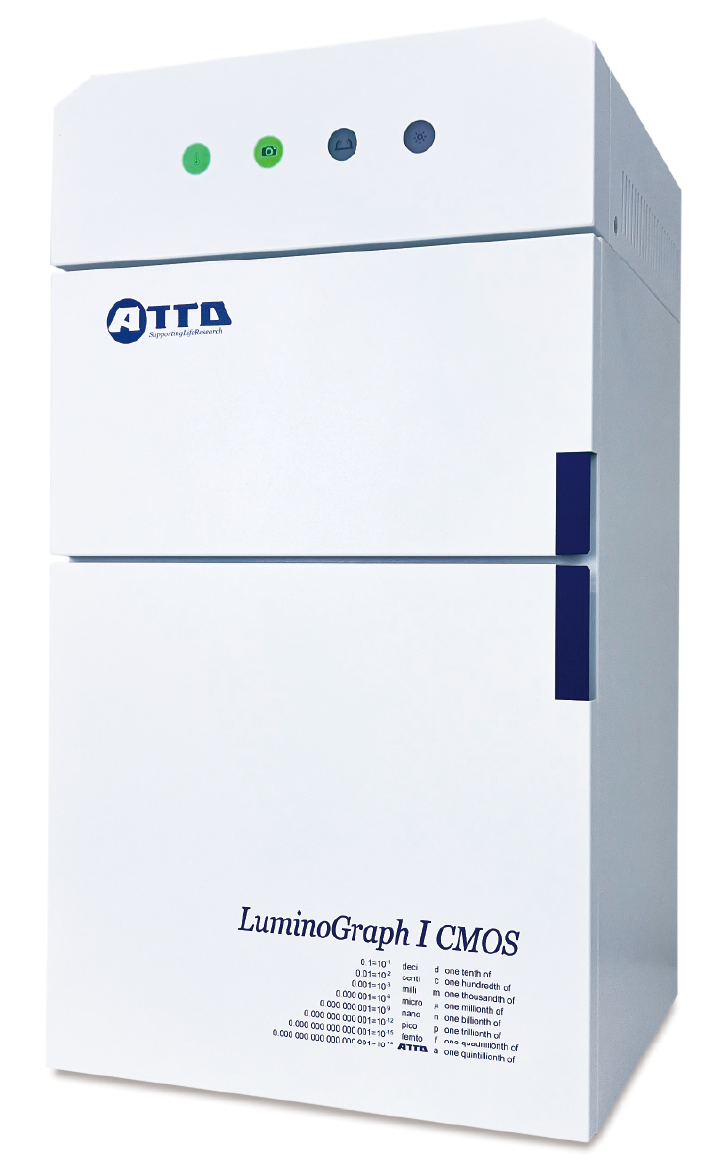
Purpose and Application
- Chemiluminescence imaging for Western, Southern, and Northern blotting.
- Fluorescent gel imaging for gels and TLC plates stained with fluorescent dyes.
- Dye-stained gel imaging for Coomassie Blue (CBB), silver-stained, and dye-colored samples.
Features
- 4 sensitivity setting : HQ/STD/High/Ultra
- Automatic exposure : AutoExposure/Automatic merging of marker images
- 4 mega pixels high sensitive cooled CMOS camera enables high resolution and sensitivity
- F 0.95 high sensitive lens
CS Analyzer -ATTO Original analysis software
- Windows PC installation
- Housekeeping protein ratio Normalization function
- Free updating(Software) service
- Image analysis function
- Revision of distortion bands pattern
- Quantitative analysis of band signal intensities
Description
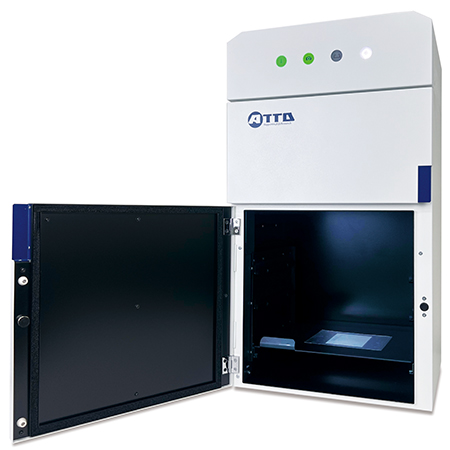
① CAMERA LENS FILTER
- CAMERA : COOLING CMOS CAMERA
- Pixels : 2688 x 1512 (4 Mpixels)
- Lens : F0.95 single-focus lens
- Filter (optional) : YA-3 (LPF560), ND-0.1 (diminished filter)
- The high-sensitivity cooling CMOS camera enables high-sensitivity chemiluminescence samples.
- If you use the sensitivity on gain function,
- “HQ” → “STD” → “HIGH” → “ULTRA”
- You can increase the detection sensitivity without compromising the resolution.
② White light source (Option)
- CBB-dyed gel, silver-dyed gel, etc., are used with a white transmission light source with less uniform.
- It can be photographed with a high-resolution image of 4 megapixels.
- Photographed images can be stored in 16-bit TIFF and are suitable for quantitative analysis.
③ Cyan Transparent Light Source (Option)
- A transmission-type fluorescent irradiation device with a peak wavelength of 505 nm (half-width ± 25 nm) can detect various fluorescent staining reagents, including ethidium bromide.
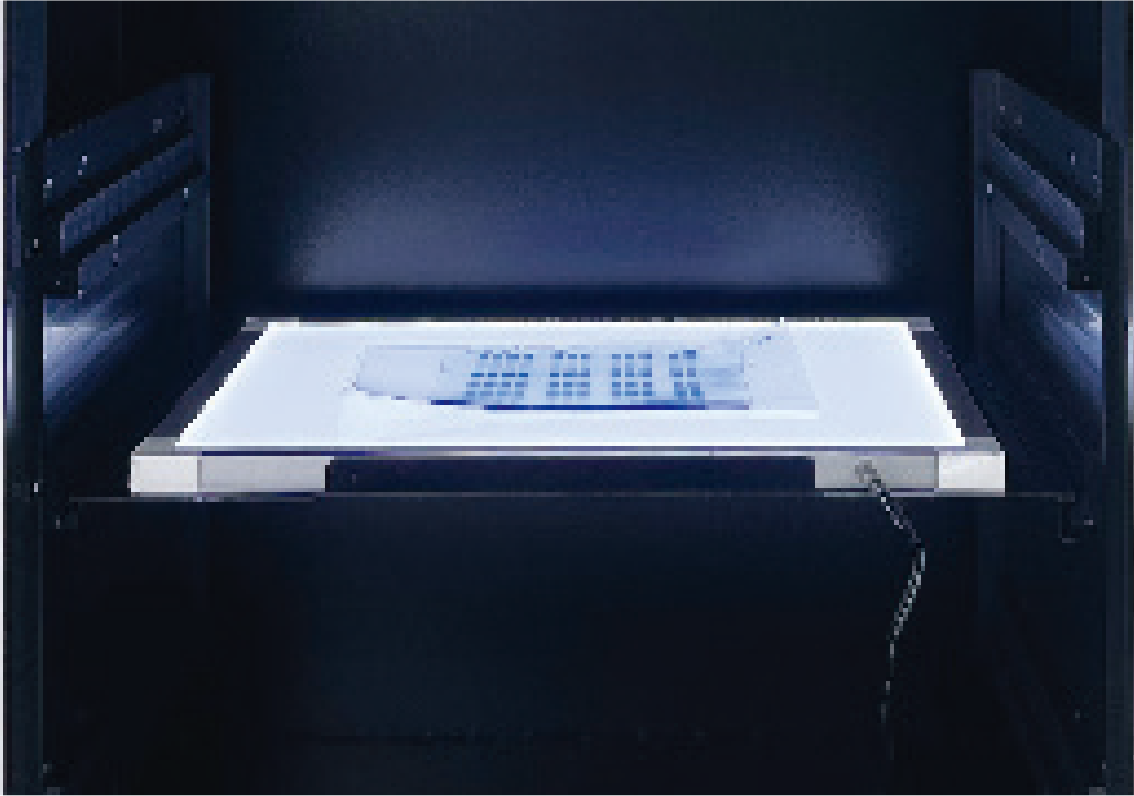
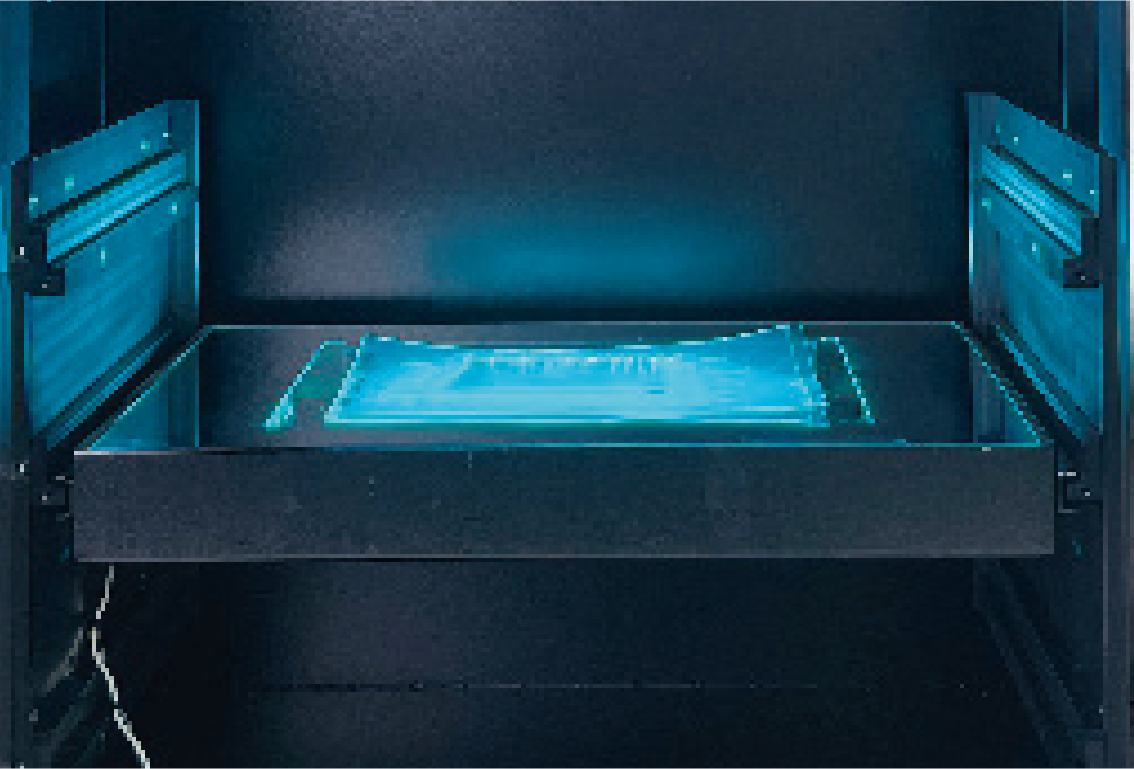
Impact of Gain Settings on Detection Sensitivity and Image Quality
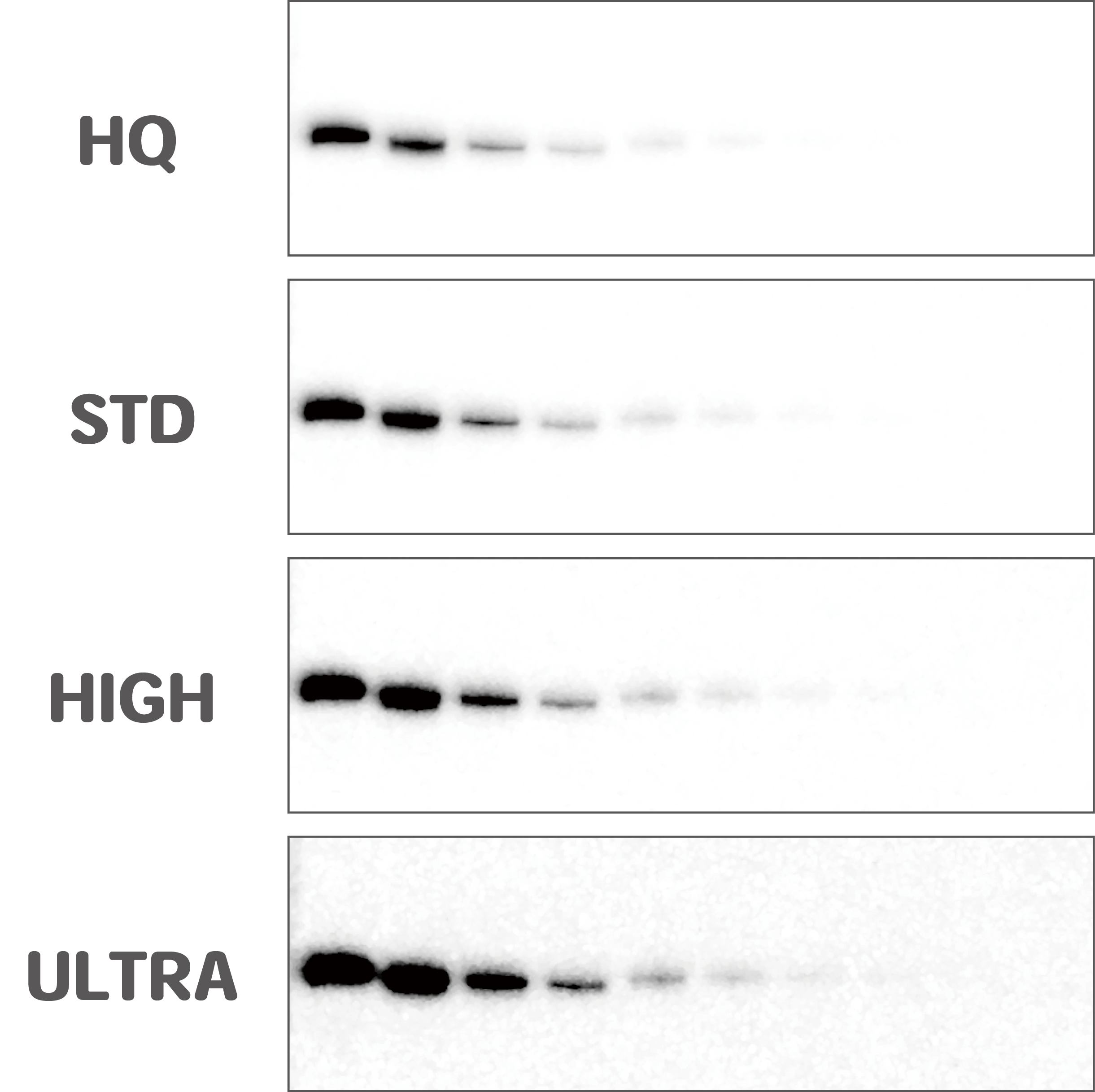
- Unlike binning, gain-based sensitivity adjustment can increase the sensitivity itself without compromising image resolution.
- It shows the results of western blotting of transferrin proteins that in a 1/2 dilution sequence from 10ng/lane with anti-transferrin antibodies. It is a photographic image of luminescence after reaction with an HRP luminescence substrate.
[Experimental conditions]
Gel : M-520L
Sample : Human Transferrin(1 ng left to 1/2 dilution sequence from lane)
Transcription Criteria: QBlot W , 24V, 15 mins
Blocking : EzBlockCAS , 30 mins
Antibodies:
Primary antibody: anti-human transferrin rabbit polyclonal antibody
Secondary antibody : HRP-labeled anti-rabbit Ig antibody
emission detection : EzWestLumi plus
Detection device : LuminoGraph I CMOS
Exposure time : 1 min
Luminescence Detection in Western Blotting with Total Protein Normalization
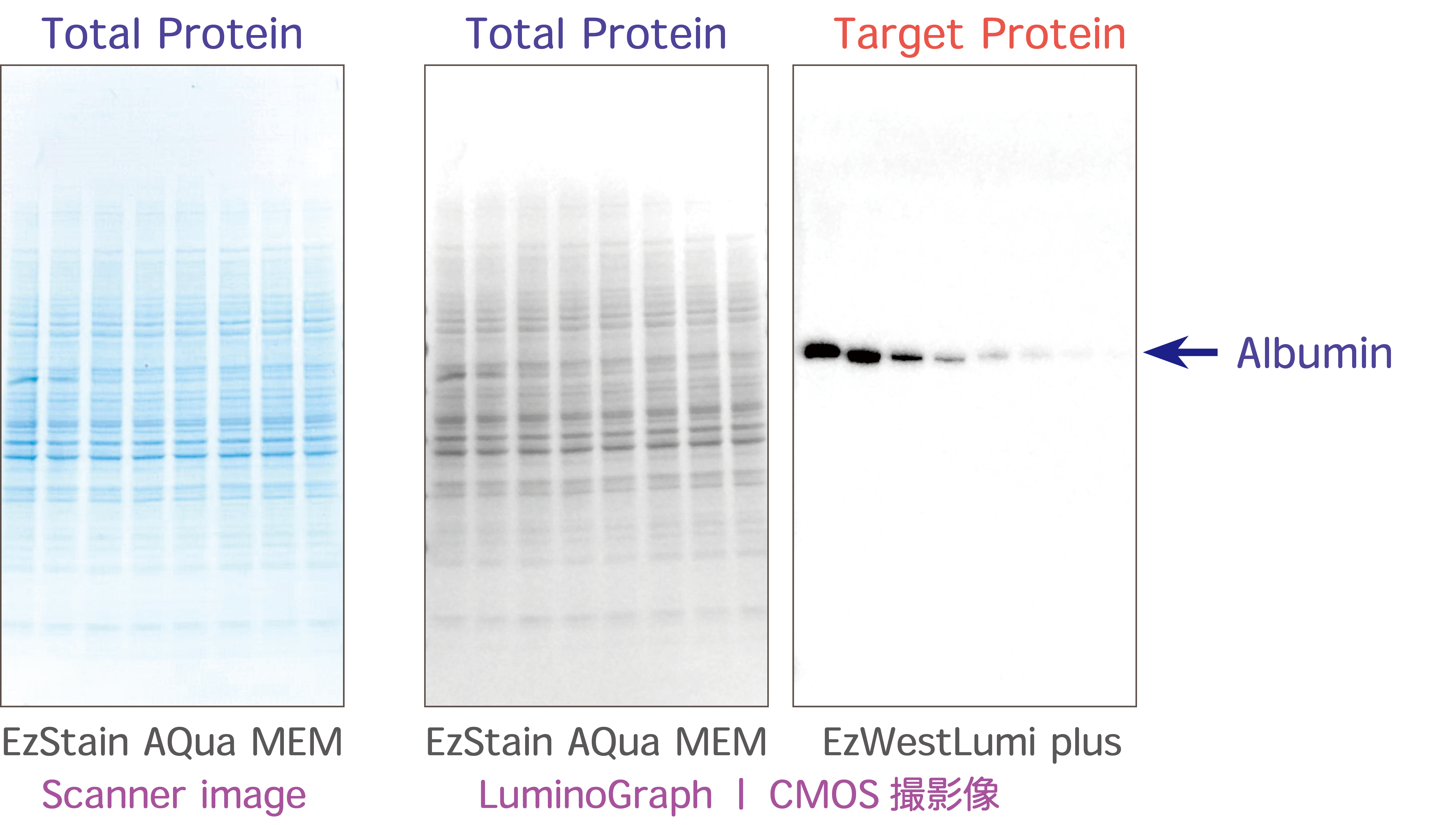
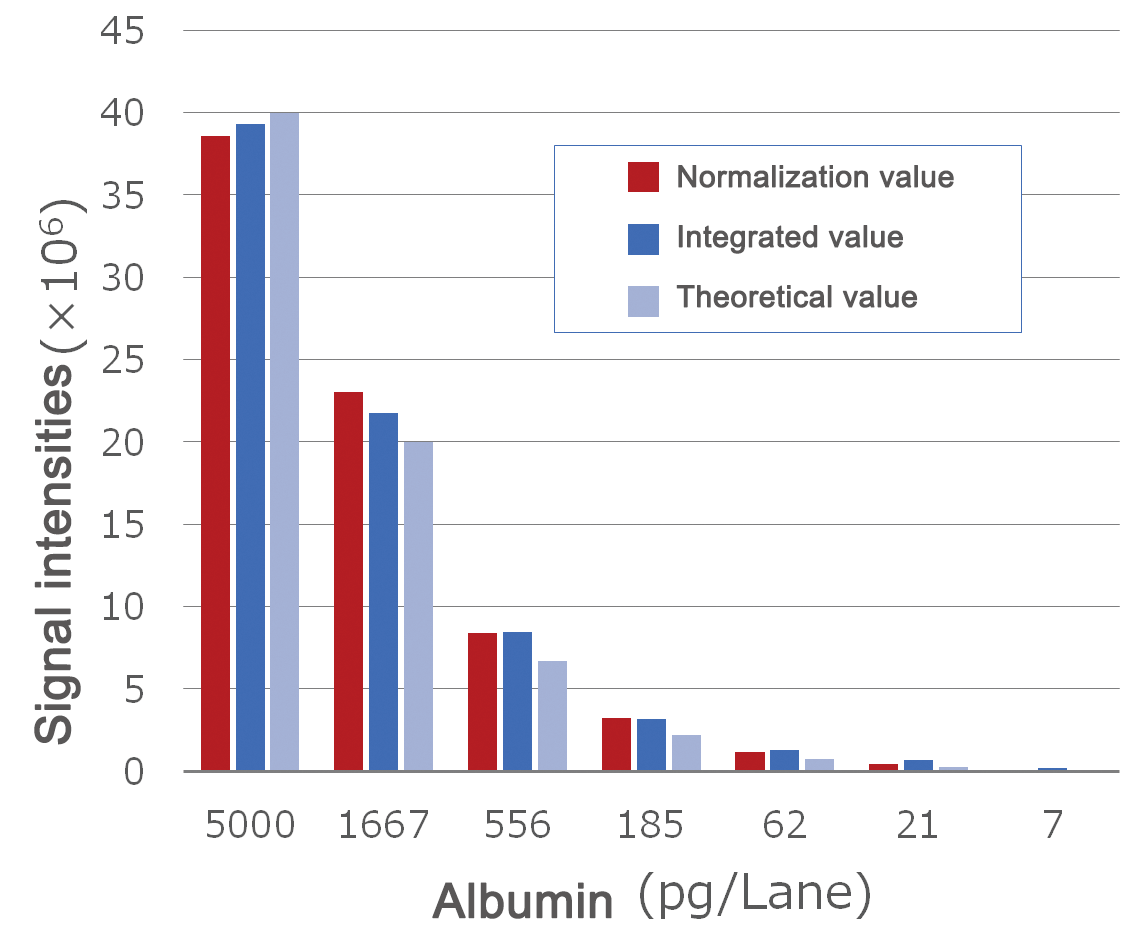
- A sample of HeLa cell extraction protein added 0-5 ng of human albumin per lane was separated by u-PAGEL H and transcribed by QBlot Mini, and the total protein on the PVDF membrane was detected by EzStain AQua MEM.
- Western blotting was performed using anti-human albumin antibodies and light emission was detected by EzWestLumi plus.
- The image above shows the total protein (bright field) and target protein (luminescence) taken with LuminoGraph I CMOS.
- The graph is the result of analyzing each image data with CSanalyzer 4 and normalizing the amount of albumin based on the signal value of all proteins.
- We were able to detect albumin in a wide concentration range of 3 orders, ranging from 7 pg to 5000 pg, with a signal intensity approximate to the theoretical value.
- LuminoGraph I CMOS can detect low concentrations of weak luminescence with high sensitivity, and can be photographed in a wide dynamic range without saturation of high concentrations of protein.
[Experimental conditions]
Gel : UH-T420
Sample : Cell extract with human albumin added
HeLa cell extract (20μg/all lanes)
human albumin
(5 ng from left / 1/3 dilution sequence from lane)
Transcription Criteria : QBlot M, 24V, 15 mins
Blocking : EzBlockCAS, 30 mins
ANTIBODY: HRP-LABELED ANTI-HUMAN ALBUMIN
emission detection : EzWestLumi plus
Photographic equipment : LuminoGraph I CMOS
Bright field : Interior lighting, 10 ms
Luminescence : 10s
DNA Detection in Acrylamide Gel Electrophoresis

- It shows the results of a 30-minute-stained gel Electrophoresis with a fluorescent reagent through a size marker of DNA.
[Experimental conditions]
Gel : EHR-T7.5L
Buffer : EzRun TG
Sample : Various DNA Molecular Weight Standards
Gel Dyeing : EzFluoroStain DNA
EzPreStain DNA & RNA
Photographic equipment : LuminoGraph I CMOS
filters : YA-3 (optional)
Light Source : CyanoView (optional)
Filming time : EzFluoroStain DNA 20 ms
EzPreStain DNA & RNA 50 ms
Protein Detection in Acrylamide Gel Electrophoresis
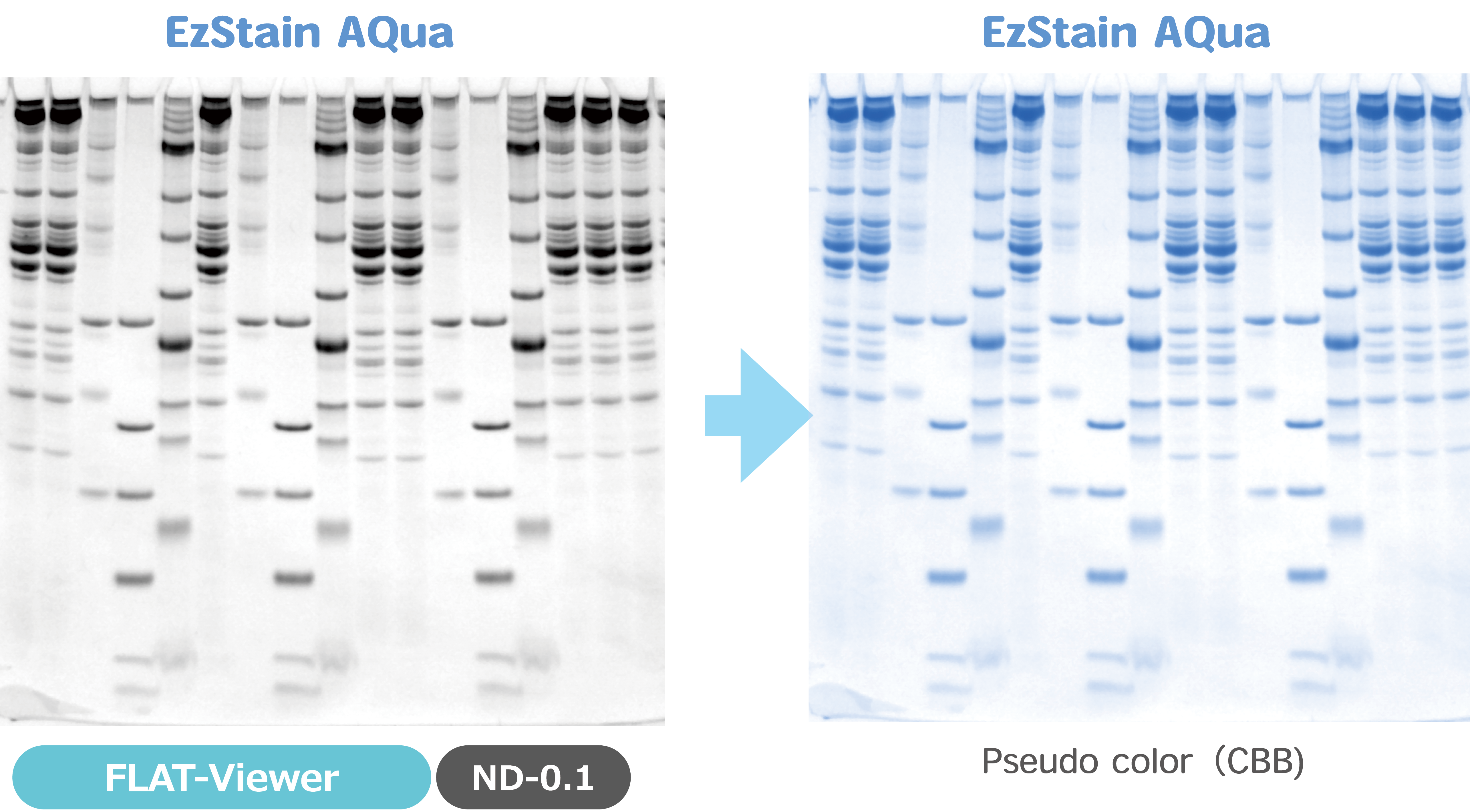
- Image of a CBB dyed (EzStain AQua) gel taken using a combination of displayed light sources and filters.
- The CBB stain gel was subjected to pseudo-color treatment with CS Analyzer after detection.
[Experimental conditions]
Gel : P-R16.5S (trisin gel)
Buffers: EzRun T
Sample : Chicken muscle extract, EzStandard II,
EzStandard LMW, EzProtein Ladder
Gel stain : EzStain AQua
Photographic equipment : LuminoGraph I CMOS
filters : ND-0.1 (optional)
light source : FLAT-Viewer (optional)
Exposure time : 300 ms
Brochure
Specifications
| WSE-6170 LuminoGraph Ⅰ CMOS | ||
|---|---|---|
| Camera | High sensitivity cooled CMOS camera | |
| Image size | 2688 x 1512 | |
| Camera lens | F 0.95 prime lens | |
| Binning | 1x1, 2x2, 4x4 binning | |
| Gradation | 16-bit(65,536 gradations) | |
| Filter | Replaceable with dedicated filter holder Filter size : 50mm square |
|
| Power | 100~240 VAC, 50/60Hz, 150W (MAX) | |
| Dimension | 363 (W) × 307 (D) × 660 (H) mm | |
| Weight | 18 kg | |
Ordering Information
| Code No. | Description | Unit |
|---|---|---|
| 2006170 | WSE-6170 LuminoGraph Ⅰ CMOS | 1 set |
| 2006276 | CyanⅡ LED light kit (for WSE-6170/6270) | 1 set |
| 2006279 | White LED light kit (for WSE-6170/6270) | 1 set |
| 2110030 | CS Analyzer4 Windows OS | 1 pk |
| 2006177 | Filter holder (for WSE-6170) | 1 pk |
| 2195931 | Gel tray S (194 x 164 mm) | 1 pk |

